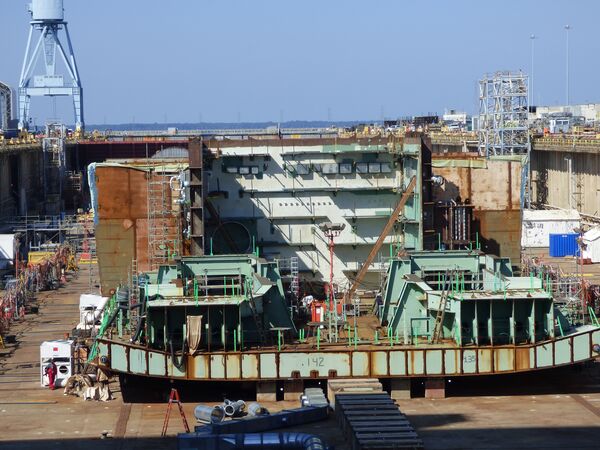
Aircraft carrier Enterprise is running 18–26 months behind schedule. (Janes/Michael Fabey)
Major US Navy (USN) shipbuilding programmes are running one to three years behind schedule due in a large part to the lack of a sufficient workforce and supply-chain disruptions, according to a 45-day shipbuilding review of these programmes and USN officials who spoke about the review's findings on 2 April during a roundtable media discussion.
While some of these issues are “lingering” Covid impacts, Nickolas Guertin, assistant secretary of the navy for research, development, and acquisition, acknowledged during the roundtable that they have become a new normal of the shipbuilding waterfront world.
“The supply chain is different now,” he said, adding some materials must be acquired much sooner than before.
In addition, he said, not only has there been a thinning of the workforce, there has also been a “greening of the workforce” – with veteran workers leaving the ranks and being replaced by younger and less-experienced workers, which also has an impact on waterfront work.
Waterfront woes have had an impact on USN shipbuilding contracted delivery schedules, based on current performance, according to the 45-day shipbuilding review summary released on 2 April.
Columbia-class strategic submarine lead ship District of Columbia (SSBN 826), the USN's priority shipbuilding project, is now running about 12–16 months behind the scheduled October 2027 contract delivery date.
Block IV Virginia-class attack submarines (SSNs) are running about 36 months behind schedule, while Block V Virginias are running about 24 months behind schedule.
Constellation-class guided-missile frigate lead ship Constellation (FFG 62) is running 36 months behind schedule and Ford-class aircraft carrier Enterprise (CVN 80) is running 18–26 months behind schedule.
Looking to read the full article?
Gain unlimited access to Janes news and more...







